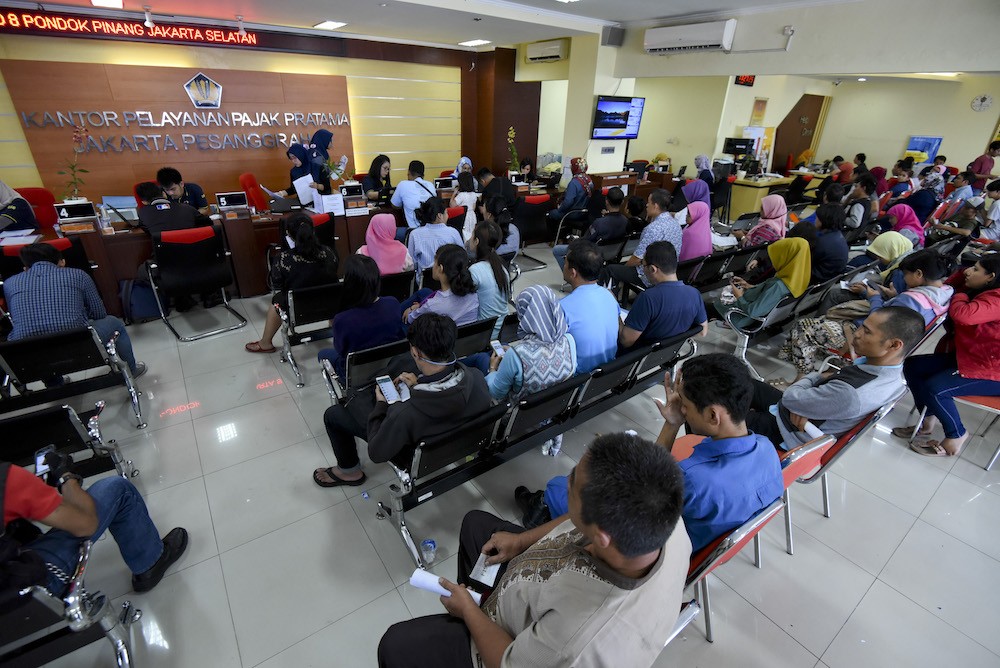Popular Reads
Top Results
Can't find what you're looking for?
View all search resultsPopular Reads
Top Results
Can't find what you're looking for?
View all search resultsEDITORIAL: Tax compliance still poor
Only 65.40 percent of the 16.3 million registered individual taxpayers filed their 2017 income tax returns by the March 31 deadline.
Change text size
Gift Premium Articles
to Anyone
O
nly 65.40 percent of the 16.3 million registered individual taxpayers filed their 2017 income tax returns by the March 31 deadline, which indicates persistently poor tax compliance even after the most generous tax amnesty that ended in March 2017.
More disappointing is that only 992,000 of the 10.6 million compliant taxpayers were self-employed professionals, such as doctors, consultants, lawyers and businesspeople, while the other 9.6 million were paid employees whose employers withheld their income taxes.
This means only about 40 percent of compliant taxpayers were self-employed individuals, including high network individuals (HNWI). The figure simply reinforces the high incidence of tax evasion, and confirms the World Bank’s estimate that the government had collected only half of its potential revenue.
It is thus no wonder that personal income taxes contribute only about 10 percent of total tax revenues, while corporate income taxes and other indirect taxes generate the other 90 percent. In most countries, personal income taxes contribute the bulk of tax receipts.
The low number of personal income tax returns reflects the poor tax culture and poor voluntary tax compliance, and can even be perceived as indicative of massive tax evasion, notably among the self-employed category of individual taxpayers that includes highly paid professionals and the richest people in the country. This trend is worrisome, because a higher rate of personal income tax collection could help bridge the wide income gap.
It must be noted that the relatively higher rate of tax returns from corporate employees was not generated by voluntary tax compliance, but simply because their income taxes were withheld by their employers anyway.
Poor voluntary tax compliance and the low income tax base make it imperative for the government to reform the entire tax system. We will never be able to achieve the minimum 15 percent tax-to-GDP ratio needed to stimulate growth under the current tax system.
Then again, the government should also realize that the tax culture cannot be nurtured only through vigorous taxation and sanctions against tax evaders. True, tax compliance would increase if the cost of tax evasion was set very high, and tax evaders feared the high chance of getting caught by tax auditors.
But the tax authorities will never have enough auditors to examine all taxpayers, because it would not be cost efficient to recruit so many tax officials to audit the returns filed by millions of taxpayers.
Hence, the government should nurture a higher degree of voluntary tax compliance so that auditors could focus on potential big tax evaders. But compliance will only grow when taxpayers know that their money is being put to proper use for the greater public interest.
Put another way, as long as the government is still perceived to be rather lax in combating corruption, thereby allowing taxpayers’ money to be wasted, the condition will remain unconducive to encouraging voluntary tax compliance. Tax culture is strongly influenced by taxpayers’ perceived integrity of tax officials and their perceived credibility of the government with respect to good governance.










